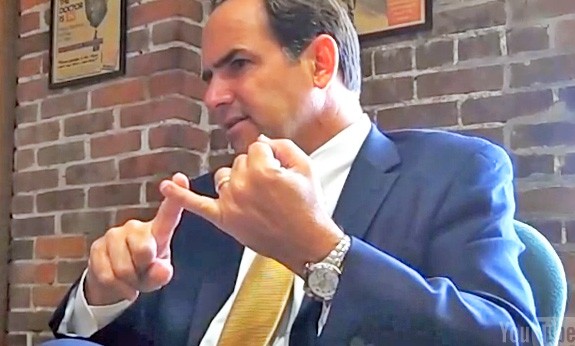Anybody who’s been paying the slightest bit of attention to Tennessee state government in recent years has surely noticed that we have what amounts to one-party government. Republicans run the roost, and Democrats are a rump group with minimal numbers and no power.

This state of affairs has existed for less than 10 years. Going into 2008, the year of Barack Obama’s election as president, Tennessee still had a nominally Democratic governor in Phil Bredesen, control of the state House of Representatives, and near-parity in the state Senate, where Republicans had the narrowest possible majority.
The turnover of a handful of seats in 2008 gave the GOP a majority of one in the House.
It was only in the presidential off-year election of 2010 that the Republicans essentially swept the Democrats in legislative races and took firm control of both houses. That year, the gubernatorial race was basically a three-way affair involving Republicans Bill Haslam, Zach Wamp, and Ron Ramsey, with the general election contest between primary winner Haslam and Democrat Mike McWherter being a no-contest walkover for the GOP.
President Obama was reelected in 2012 with no help from Tennessee, an erstwhile bellwether state which at that point had firmly realigned with the Deep South politically. In the off-year election of 2014, the Republicans won their present super-majority. End of story?
Nope. What has gone on since has been the slow, but now obvious, development of a fissure in state Republican ranks. As it turns out, nature not only abhors a vacuum; failing an iron-handed dictator, it pretty much rejects a monolith, too, and, under easy-going Republican Governor Haslam, the natural yin and yang of things has begun to reassert itself.
Among state Republicans, this fragmentation first became noticeable in several of the legislative fights over gun bills — particularly those imposing official toleration of concealed weapons on or around business property. Those battles pitted Republican legislators loyal to (or indebted to) established corporate interests against Tea Party insurgents who were susceptible to the blandishments (or threats) of the faux-populist NRA.
The estimable journalistic-workhorse-turned-occasional-columnist Tom Humphrey did an insightful take this past weekend about a legislative Republican split over two matters — one, the so-called “bathroom bill” that would force transgendered persons to use only the public lavatory facilities of their birth gender; the other, a bill enshrining the Holy Bible as the official state book. Leaving aside the very real civil-liberties and First Amendment aspects inherent in both bills, the aforementioned corporate interests opposed them both because they were, in simplest terms, bad for business.
The Republican Party’s right-wing populists, on the other hand, favored the two bills as emblematic of their “values” issues, in defense of which they had drifted away from what they saw as an over-secularized, over-diverse Democratic Party.
This time, there was no powerful lobby like the NRA intervening, and business (aided by the Democratic minority) won, forcing the eventual scuttling of both bills. But there will be other such battles on the state front — each corresponding in rough (if inexact) ways to the current national schism between Trump supporters and the GOP establishment.
If all this bodes ill for the future unity of the Republican Party, the Democrats have their own fissures to worry about. The presidential-primary contest between Hillary Clinton and Bernie Sanders has outlined an ongoing struggle within the Democratic Party as well — one similar in some ways to that afflicting the Republicans.
Sanders is clearly on to something with his unflagging emphasis on the core issue of economic inequality. He’s the one attracting the multitudes, building out from that central issue, while Clinton’s political base is more a matter of putting together a collection of special interests, patchwork-style, working from the outside in.
Many of these she shares with Sanders — blacks, gays, women, civil libertarians, low-income voters, et al. — but one of them is hers alone: big money. She is still the likely primary winner, but her ties to the financial establishment leave her dependent on the amorphous appeal of “diversity” instead of the central one of reform.
If not this year, down the line, the Democrats in Tennessee as elsewhere will have to have their own internal reckoning.
Senior editor Jackson Baker is the Flyer‘s political columnist.

 Jackson Baker
Jackson Baker 